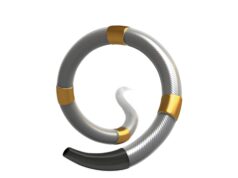 New and expanded guidelines from the European Society of Hypertension (ESH) concerning the management of arterial hypertension state that renal denervation can be proposed as an adjunctive therapy in select patients with resistant hypertension.
New and expanded guidelines from the European Society of Hypertension (ESH) concerning the management of arterial hypertension state that renal denervation can be proposed as an adjunctive therapy in select patients with resistant hypertension.
Presented during the ESH’s 32nd annual European meeting on hypertension and cardiovascular protection (24–26 June, Milan, Italy) and published in the Journal of Hypertension, the new guidelines are designed to serve as “an essential resource” for healthcare professionals treating individuals with hypertension, ESH said in a press release.
Arterial hypertension is a common and leading preventable cause of heart attack, stroke, kidney failure and death, impacting 1.28 billion adults worldwide, ESH states in the release.
Among the changes to the guidelines, which were last reviewed in 2018, are modified and simplified criteria for evidence grading recommendations, as well as updated definitions, classifications, and recommendations for measurement and monitoring of hypertension and blood pressure.

“We believe providing updated guidelines for the treatment of hypertension is vital to ensuring clinicians have the latest recommendations for treating the billions of people around the world with hypertension,” co-chair of the guideline writing committee, Giuseppe Mancia (University Milano-Bicocca, Milan, Italy), said. “We look forward to seeing the impact these guidelines have, especially for patients who do not adhere to medication.”
The guideline changes are intended to reflect expanded patient populations including women, older adults, young adults, children and adolescents, as well as innovations in therapeutic strategies developed to treat uncontrolled hypertension, which include the use of renal denervation.
Initial excitement over the potential for renal denervation as a device-based treatment for hypertension cooled following the release of initial results of the SYMPLICITY HTN-3 trial in 2014, in which it was shown that, at six months, renal denervation did not elicit significant incremental blood pressure lowering benefit compared with a sham procedure.
The 2018 guidelines—which were published jointly with the European Society of Cardiology (ESC)—subsequently advocated against the routine use of device-based therapies for hypertension, until further evidence of their safety and efficacy came to light. However, newer sham-controlled trials have revitalised hope in the potential of renal denervation, with a number showing statistically significant and clinically meaningful reductions in blood pressure.
A joint consensus statement from the ESC Council on Hypertension and the European Association of Percutaneous Cardiovascular Interventions (EAPCI), published in February 2023, noted that renal denervation represents another treatment option in patients with uncontrolled resistant hypertension and may be used in selected patients deemed intolerant to antihypertensive drugs.
The updated guidelines from ESH are the latest document to address new evidence concerning renal denervation.

They cite recent randomised trials, including the RADIANCE-HTN and RADIANCE II trials, investigating the Paradise (ReCor Medical) ultrasound renal denervation system, and SYPRAL HTN-OFF MED, investigating the Symplicity Spyral (Medtronic) multi-electrode radiofrequency device, as having shown that the treatment can be associated with a significant, albeit not marked, reduction in office and ambulatory blood pressure in patients with uncontrolled hypertension.
For these patients, it is stated that the therapy can be considered as an option if they have an estimated glomerular filtration rate (eGFR) of at least 40ml/min/1.732, in spite of the use of antihypertensive drug combination therapy, or if drug treatment elicits serious side effects and poor quality of life.
And, for patients with true hypertension, the document notes that renal denervation can be considered as an additional therapy in patients with true resistant hypertension and an of at least 40ml/min/1.732.
The guidelines state that the selection of patients to whom the treatment is offered should be carried out in a shared decision-making process, and that the technique should only be performed in experienced, specialised centres to guarantee the appropriate selection of eligible patients and completeness of the denervation procedure.
Though the ESH says that the guidelines are intended to cover the treatment of patients around the world, presently both the Symplicity Spyral and Paradise devices only carry a CE mark. However, this situation may soon change, with Medtronic and ReCor having both filed premarket approval applications to the US Food and Drug Administration (FDA) in late 2022 for their respective devices. At a meeting in late August, the Circulatory System Devices Panel of the FDA’s Medical Devices Advisory Committee will meet to advise on the use of both devices in patients with uncontrolled hypertension.










